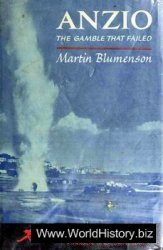Both chronicles and regulatory documents attest that from the first decades of the fourteenth century onwards there was a growing and deliberate intervention by the Observant friars in the mechanisms of reform of city statutes. This was particularly apparent in those central Italian cities where the papal monarchy was gradually asserting its power over the local oligarchies, and took the form of preaching which explicitly condemned factional conflict and promoted peace. The presence of Franciscan preachers in Umbria and the Marches (Bernardino da Siena and Giacomo della Marca among others) can be related to a change in the power-base of cities: their presence is recorded in Perugia, Assisi, Todi and Foligno after the death of Braccio Fortebraccio in 1424, and in Ascoli Piceno and Fermo after the death of condottiere Niccolo Piccinino in 1444. The arrival of a weU-known preacher to preach a series of sermons was never a question of chance or even of a friar's individual decision. Instead, it was generally the result of complex negotiations between the ecclesiastical authorities and local power-brokers which resulted in a prompt towards reform by one of the parties. This was true even beyond the Papal States and outside the traditional liturgical periods such as Advent and Lent, at this time and later.916
The impact of preaching was inevitably linked to the emotional effects produced by a preacher of charismatic reputation: hagiographical sources, domestic and city documents, and sermons recorded by their listeners are all dense with dark threats of punishment for sinners, events often confirmed by miraculous occurrences. Attempts to increase the participation of the listeners through their direct involvement are also evident. This could range from traditional processions to the new public ritual of the 'bonfire of the vanities' on which lay people forsook the values of life - gaming dice, jewellery, wigs - as a sign of inner conversion. There was a heightened emphasis on the theatrical aspects of preaching in public and this drew in laity - men and women alike.
The preachers seem, at first glance, to have been summoned to one or another city in order to facilitate those changes to the statute books which had been envisaged by the power-brokers who had invited them in. However, the preachers themselves became increasingly aware of this reality, and, once established in a city sought to promote their own agenda for Christian renewal, which often included a severe critique of the rulers. It is surely telling that those new laws introduced onto the statute books which went beyond merely reforming existing positions were in general extremely shortlived, and were reformed in turn not long after the departure of the preacher. Inherent in these sermons was the desire for the establishment of strong and stable government, that is to say, for forms of government in which the repressive authority of the state was exercised not only against factional violence, but also against some common social ways of behaving. For the moralist, these factors seemed in equal measure to undermine the restoration of an ordered society.
Bernardino da Siena's generation sought to obtain tangible results by preaching, and to override the apathy and concern created by the years of ecclesiastical schism and the conciliar crisis.917 The following generation of preachers offered sermons that were ever more pointed, and some of them - thanks to the acknowledged charismatic preachers - were even used for important assignments which were directly entrusted to them by the Roman papacy. The Abruzzan friar Giovanni da Capestrano was sent to preach against the Hussites in Bohemia. He then moved from southern Germany, and he preached the crusade against the Turks, and actually 'guided' the crusader armies in the victorious battle of Belgrade in 1456. His fellow friar Giacomo della Marca carried out similar activities, operating at first within the Papal States, but then also on the other side of the Adriatic in the territories of the Hungarian crown.
Other Observant Italian Franciscans took their message to further-flung countries, benefiting from the fact that they were subjected to the same governmental authority. This was the case for Matteo d'Agrigento in the Aragonese territories, which extended from the western part of the Iberian peninsula, across the islands of the Mediterranean, Sardinia and Corsica, to the southern portion of the Italian peninsula.918 The importance and effectiveness of preaching was no less even in a completely different institutional and social context, such as the territory of the kingdom of France.919




 World History
World History









